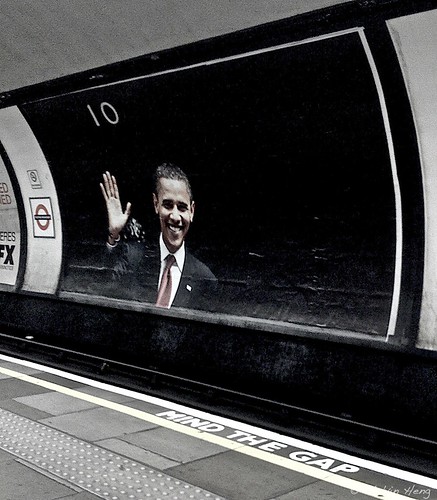
This is not a post about the things that are wrong with our world. This is a post about how we make them right. Of course it is not exhaustive, and by no means is it intended to be a detailed and flawless solution, in fact it openly admits that fact, because that (you will see) it is the point.
This post is in reaction to many things, but particularly in reaction to the recent #3strikes debate, the actions of Secretary of State for Business, Innovation and Skills, and a recently circulated confirmed rumour that suggests the same minister may have his sights set on the leadership of the Labour party. This is not a party political post, and I do not intend to argue why one man’s leadership would be bad for Labour, instead I intend to suggest that what this man represents is an outdated vision of politics, a vision that is bad for our country, and bad for our democracy.
Our society (and although I will talk more generally, ‘our’ here refers to UK society) is governed. We have democratically elected governments who, on the whole, make decisions and enforce laws with the intention of bettering society. I do not believe that anyone gets involved in politics for any other reason but improving the society they live in. This is the desire of the BNP, just as much as it is the desire of mainstream parties, their vision of a ‘better’ society might be opposed to the majority, but that is why they are not in power. Largely speaking, the party in power is supposed to represent the majority vision of what a better society is, and then strive towards it.
I do not believe that is currently so. Leaving aside first past the post reform and candidate selection, we wholly and entirely do not currently live in a democracy. The power is very much not ‘with the people’.
The Story
When Labour came into power in 1997, it was to the tune of a wholly broken opposition. 18 years of Conservative government had systematically deconstructed all that was of society and replaced it with the ethics of individualism. This was very good for a few, and catastrophic for a many. The many had finally realised. Labour won with more than just promises to renew, however, they won with what was for the first time, politics as marketing. It wasn’t just slogans, it was shiny adverts, they weren’t just promoting the values of the party, they were selling the story of New Labour.
Something else very important happened in 1997. The death of Diana. Others have pointed out before me how this marked an important turning point, not in politics, but in the media. This was the media as story, news not as reporting events, but as representing emotions. The papers spoke as though they spoke for us as they ordered the Queen from Balmoral.
Labour was in power without a credible opposition, and suddenly the press felt powerful. They could move the Queen to action. And someone needed opposing. If it was ‘The Sun Wot Won It’, The Sun could also oppose it.
Story is a very hard thing to fight. It is much older than democracy, much older than society.
That was the beginning of the era of Spin. Labour had ridden into power on a narrative, and the mainstream media had assumed the role of opposition using the same. One proposed a story of a better society, the other claimed to represent the stories (wishes) of the people who lived in it.
You notice how neither of these groups are made up of ‘us’?
This is the politics that politicians such as Peter Mandelson, David Cameron and (yes, even) Boris Johnson represent. (Can you think of a better story than the bumbling fool made good?)
An Information Economy.
Spin is all about distribution. Spin is about controlling the narrative of politics; it is about packaging and marketing your version of events. Spin requires complete control of information.
Spin is not working. Our society has grown out of it. Our country has been made undemocratic because of it. Our politicians do not fear the people, they fear the press. The people do not trust their politicians because the press exposes the antiquated attitudes and secrecy within their ranks. However the Press only constructs an oppositional story, it does not deconstruct it. The press is also not run for anything but the benefit of sales. No matter how well standing the broadsheet, how ubiquitous the tabloid. The mainstream media choose their story, and then they spin their readers and politicians into it.
The internet opposes and undermines that.
We live in an information age. For better or worse that is something that must be accepted. There is a rival economy, and it consists of information, it is a world (democratically, one might say) built of a thousand individual narratives. No one claims to speak for others, if someone is championed, it is because one person had the words that echo with others’. In this context the politics of Peter Mandelson et al will not work. He is a clever man, and I hope clever enough to see that one voice, big business, Spin, the politics of ‘push’, are gone. This is the century of pull, this is the century that politics has to become mutual.
Wikipolitics.
Well, everything needs a title doesn’t it? (/a hashtag).
I have blogged before about how I don’t believe in apathy, but I do believe in disengagement. I believe that British politics is due a reformation. I believe that we can demand that. Are you bored of the tone of the Labour government? Do you really believe that a Tory one will be different? Are you looking for a protest vote? A voice? You will not currently find it at the ballots.
What is Wikipolitics?
It is a starting point. It takes the open-source ethic and applies it to government. I don’t propose that we edit policy documents. I do believe that parliament should be opened up, demystified, and the power taken back. How do we do this? We’ve already started, look at projects such as Louder, 38 degrees, look at the Trafigura backlash, the Iran election, the G20 protests.
We now live in a world where we construct our own media consumption, where we pull together, build our own stories. Politics and the mainstream media are clinging on to old methods of distribution and delivery.
Whilst still acknowledging that at least 2/3 of the world does not have access to the internet (the UK figure is something like 30%, with a further 7-8% only having narrowband access – source) and those who do are likely to be from more affluent, developed backgrounds, we also need to be aware that instant publishing and access to our own media channels is incredibly empowering.
We also need to pull ourselves out of the luxury of political disempowerment. It is our responsibility to be involved in politics. If it is not one with which we wish to be involved, then we need to change it.
Reformation, Reclamation.
We need to tell our parties: “Arm your backbenchers with Flips, with Audioboo, with simple wordpress websites. Open up. Work in real-time. And don’t be afraid. We know you are, we know you are worried that you will be criticised, pulled apart, but please remember that although it has not been so before, that is what we mean by democracy. That is the open-source ethic. Let us participateâ€.
This worked for Obama, he brought the US the highest election turnout in a century. But then he stopped. And that where it’s gone wrong. That’s when Murdoch took back over.
The mainstream media has characterised us as a pack of baying wolves. The politicians have been characterised as lying snakes and fat cats. 2/3 people believe they cannot affect decision making. Trafigura, Jan Moir, proves we can. How about we take that to the rest of politics? How about we build our own wiki-guide to how we want to be engaged with, how we want to ask questions of the policy makers, of the parties? How about we offer a route that bypasses the mainstream media – taking honest debate and mobile video on the campaign trail, introducing them to the modern realities outside the political bubble, having a conversation, rather than being delivered a speech. You may argue that there’s no point in participating in a broken system, but how else are people to know how to fix it?
Because this is important. As it currently stands it would take as many years to get women equal representation, as it would a snail to crawl the length of the Great Wall of China. As it currently stands we are bickering and buying our way to climate disaster. As it currently stands we live lifestyles of excess and complete unsustainability. And for all our excess, are we happy? Or are we to some degree living the lives and values that are sold to us – other peoples’ stories?
We are facing a hyper-connected, global village era, politics cannot continue to be its own island.
This is not a manifesto, it is a call to arms. And this is where I stop, because this is a story, too. It’s a story about us, but it’s still my version. We need to write an ending together. How can we open up the political process? What do we want to know? Do we think there should be more experts involved in policy making? Do we want to see cabinet meetings taking questions from Twitter? What tools can we offer? Comment. Engage. This is up to all of us. What can we build? (We have the technology). Go.
— Hannah Nicklin is a brightly coloured and basically nocturnal playwright, blogger, academic and geek. She normally lives over at hannahnicklin.com, and is @hannahnicklin on Twitter.


 Everything has changed. And the more things change, the more they stay the same. Every time a new technology comes along, its success is largely governed by the level to which it helps us to do what we’ve always wanted to do, but have previously been unable to do properly – or at least as well – because the tools didn’t exist to do it.
Everything has changed. And the more things change, the more they stay the same. Every time a new technology comes along, its success is largely governed by the level to which it helps us to do what we’ve always wanted to do, but have previously been unable to do properly – or at least as well – because the tools didn’t exist to do it.